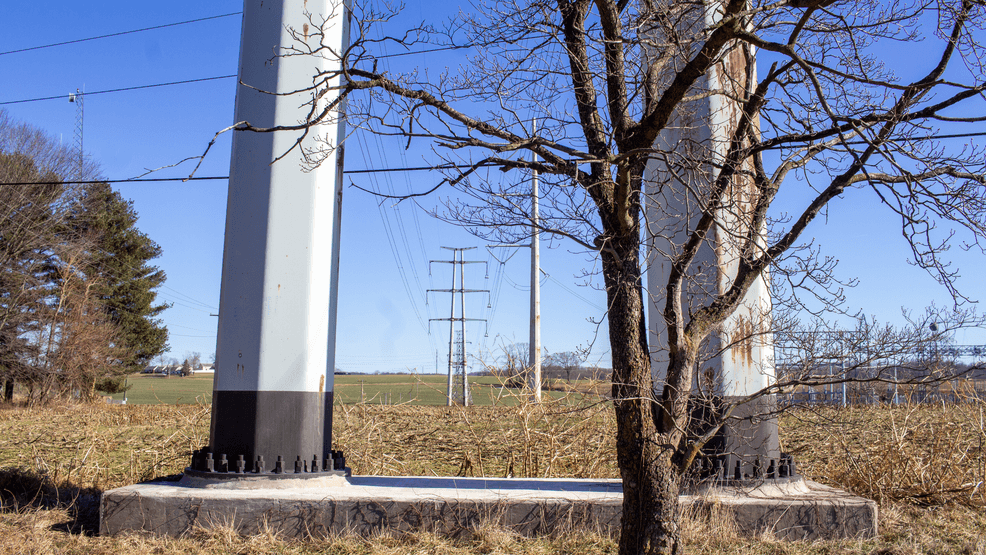ANNAPOLIS, Md. (WBFF) — As energy costs spike across Maryland and an unpopular power line project continues to fight for approval, the state legislature’s energy-focused committee in the Senate was busy Thursday afternoon with a flurry of bills seeking immediate relief.
Sen. Chris West, R-Baltimore and Carroll Counties, urged the Senate Education, Energy, and Environment Committee to consider his bill that would launch a special state task force focused on developing a master energy plan that forecasts the region’s current and future power needs.
The legislator said that his bill’s goal is to reduce the state’s dependence on imported energy via the power grid to ensure the state’s lights remain on.
[I]nstead of producing 40% of our electricity that we produce today, by 2035, we will only be producing 15% of our electricity that we need, and we will be importing 85% of our electricity,” Sen. West said.
The bill would also require the Maryland Public Service Commission (PSC) to delay approving the construction or expansion of transmission line projects in the state, such as the Maryland Piedmont Reliability Project (MPRP), until the task force submits its findings.
“Maryland is on course to consume massively increased amounts of electricity over the next decade,” Sen. West said. “The Climate Solutions Now Act was passed in 2022. There was no time on the floor of the Senate, when the bill was being debated, that talked about the effect of data centers on the state’s electrical needs.”
The MPRP, which is accused of being designed to support Northern Virginia’s thriving data center hub, is a proposed 70-mile high-voltage power line project currently under consideration by the PSC for final approval.
The project, which may pass through parts of Baltimore, Carroll, and Frederick Counties, gained notoriety when the New Jersey-based developer PSEG wrote on its website that it might use eminent domain to build a line connecting energy production in Pennsylvania with the Dobbs substation in Frederick, MD.
Ben Baker, senior commission advisor to the PSC, testified in support of Sen. West’s bill. He suggested an amendment to eliminate the proposed legislation’s restriction that prevents the regulator from approving new transmission projects.
[A]nything that helps us better understand our energy future and needs, we have been primarily supportive of and trying to make sure that we can deliver that as we continue to work together on policies to serve the energy in this state,” Barker said.
Meanwhile, Sen. Ron Watson, D-Prince George’s County, testified in support of his bill during the three-and-a-half-hour public hearing that focused on other aspects of the PSC’s management.
“[My bill] is a straightforward proposal with a clear objective to ensure that the Public Service Commission (PSC) reflects the full geographic diversity of the state of Maryland,” Sen. Watson said. “At present, the PSC consists of commissioners from only three counties, and historically, it has not consistently lived up to the goal of geographic diversity.”
Sen. Watson’s bill would expand the PSC from five to seven members and establish a residency requirement for commissioners to ensure representation from all parts of the state. It would also require the governor to select a chair from among the appointed commissioners.
If the law passes, a member residing in Western or Southern Maryland must be appointed to the PSC by August 1, 2025.
State law grants the PSC the authority to regulate gas, electric, telephone, water, and sewage companies within Maryland. These duties include approving utility companies’ applications to construct new power generation stations in the state and develop high-voltage power line projects.
The commission is best known for setting the utility rates businesses and consumers pay.
The Decarbonization Infrastructure Solutions Act also had a hearing on Thursday. Spotlight on Maryland first reported in early February about the proposal that could expedite the construction of nuclear power plants to meet the state’s energy generation demands.
According to PJM, the region’s power grid operator, the state currently imports nearly 40% of its energy due to accelerated green energy priorities.
“The purpose of this bill is to supercharge the state’s transition to clean energy by integrating nuclear energy into Maryland’s ‘Tier 1’ renewable source for the renewable portfolio standards,” Sen. Benjamin Brooks, D-Baltimore County, said during his testimony.
Several bills are currently before the Maryland General Assembly that seek to change state energy regulations to use the term “clean” instead of “green” or “renewable.”
Sen. Justin Ready, R-Frederick and Carroll Counties, was another state lawmaker who spoke to the committee about his initiative to require that new data centers in the state be located near power plants or existing transmission infrastructure.
Joanne Frederick, president of ‘Stop MPRP,’ joined Sen. Ready to testify in favor of the proposed data center planning regulation. Frederick’s community organization was founded in late June 2024 to fight against the MPRP.
After testifying, the pair told Spotlight on Maryland that their bill would ensure the state develops meaningful plans as the energy grid prepares for the potential impacts of data center construction.
These data centers coming will be a huge drain on our grid so we need some common-sense ways that they can provide their own energy production,” Sen. Ready said.
Frederick agreed, adding that the battle to halt the MPRP’s construction has been enlightening.
“What this bill does is open the aperture to something better, something new,” Frederick said. “It allows Maryland to be in the driver’s seat. If we want data centers, they need to bring their own power.”
Almost all the energy bills heard on Thursday had bipartisan sponsorship.
Follow Gary Collins with Spotlight on Maryland on X. Do you have news tips on this story or others? Send news tips to gmcollins@sbgtv.com.
Spotlight on Maryland is a joint venture by FOX45 News and The Baltimore Sun.
